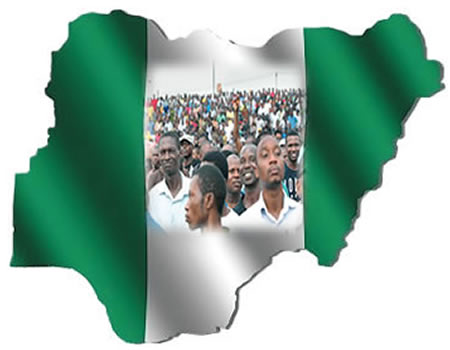Nigeria, often called the “Giant of Africa,” is a nation renowned for its vibrant ethnic and religious diversity. Home to over 250 ethnic groups, the country also hosts two major religions—Christianity and Islam—which dominate its social and cultural landscape. While this diversity contributes to Nigeria’s rich cultural heritage, it also poses significant challenges that impact the nation’s unity and development, particularly along the North-South divide.
Strengths of Nigeria’s Diversity
Nigeria’s ethnic and religious diversity brings a wealth of cultural richness and economic contributions. Each ethnic group, from the Yoruba in the Southwest to the Igbo in the Southeast and the Hausa-Fulani in the North, contributes uniquely to the nation’s economy and cultural heritage. Traditional music, dance, festivals, and cuisine from various ethnic groups create a rich tapestry that attracts tourism and fosters national pride.
Moreover, the diversity in religious beliefs between the predominantly Muslim North and the predominantly Christian South fosters a broad spectrum of ideas and approaches to problem-solving. This intellectual diversity can spur innovation and creativity, contributing to various fields, including art, literature, and entrepreneurship.
Challenges of Diversity
Despite its strengths, Nigeria’s diversity also presents significant challenges. Ethnic and religious conflicts have plagued the nation, from the Nigerian Civil War (1967-1970) to ongoing clashes in the Middle Belt. These conflicts are often fueled by political leaders who exploit ethnic and religious differences for electoral gains, leading to fragmented and unstable governance.
Economic disparities between the North and South further exacerbate these tensions. The South, with its oil wealth, enjoys relatively better economic development, while the North faces higher levels of poverty and lower educational attainment. These disparities contribute to feelings of marginalization and can lead to unrest.
The Problem of Over-Religiosity
A pervasive issue in Nigeria is the tendency for individuals to rely heavily on religious practices instead of taking practical steps to address challenges. This over-reliance on prayer, particularly in the face of pressing socio-economic issues, can detract from personal responsibility and proactive efforts to improve individual and community well-being.
In the North, where Islamic beliefs dominate, and in the South, where Christianity is prevalent, this issue manifests similarly. People often turn to religious leaders for solutions that require practical, policy-driven responses. This can impede critical thinking and hinder educational and intellectual development, limiting the nation’s potential for scientific and technological advancements.
Addressing the Challenges
To address these challenges, Nigeria must promote secularism and critical thinking. Education systems should emphasize scientific inquiry and practical solutions to societal issues, reducing the over-reliance on religious practices. Strengthening institutions to ensure transparency and accountability is crucial in mitigating corruption and ensuring that governance is based on merit rather than ethnic or religious affiliations.
Inclusive governance that fairly represents all ethnic and religious groups can help mitigate feelings of marginalization. Economic policies targeted at reducing regional inequalities are essential. Ensuring that all regions benefit from national resources and development initiatives is crucial for national unity.
Promoting interfaith and interethnic dialogue can foster mutual respect and cooperation. Initiatives that bring people together to discuss common issues and find collective solutions are essential for peacebuilding.
Nigeria’s ethnic and religious diversity is a double-edged sword. While it enriches the nation’s cultural fabric and provides a wealth of intellectual and economic resources, it also poses significant challenges in terms of political stability, social cohesion, and development. By harnessing the strengths of its diversity and addressing its challenges through inclusive and pragmatic approaches, Nigeria can build a more cohesive and prosperous society
Follow us now for more news in Oyo State.
Oyo Truth is an independent online news /medium reporting up-to-date events, happenings and activities related to Oyo State, Nigeria.







Leave a Reply